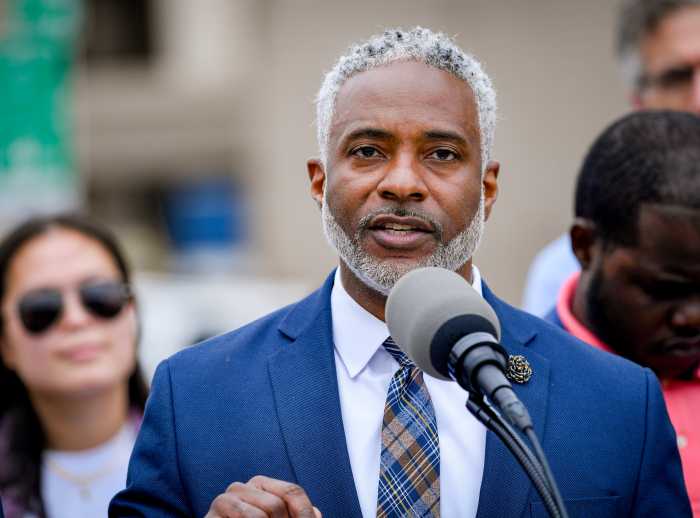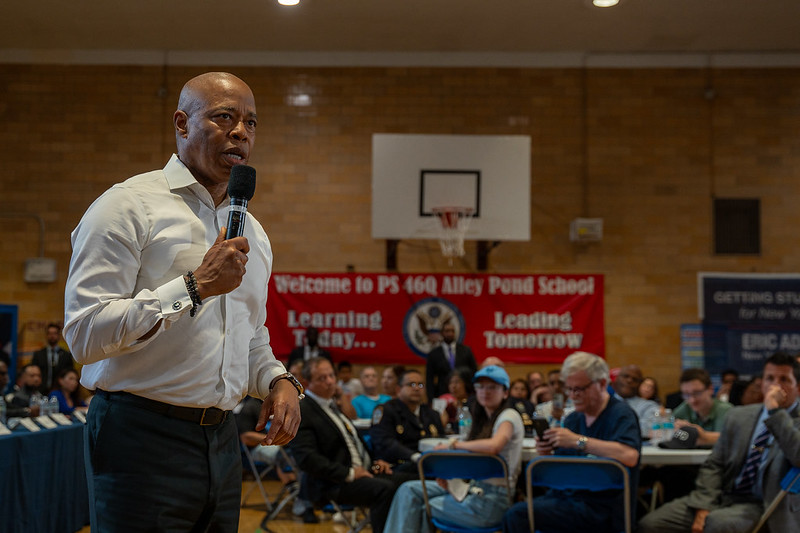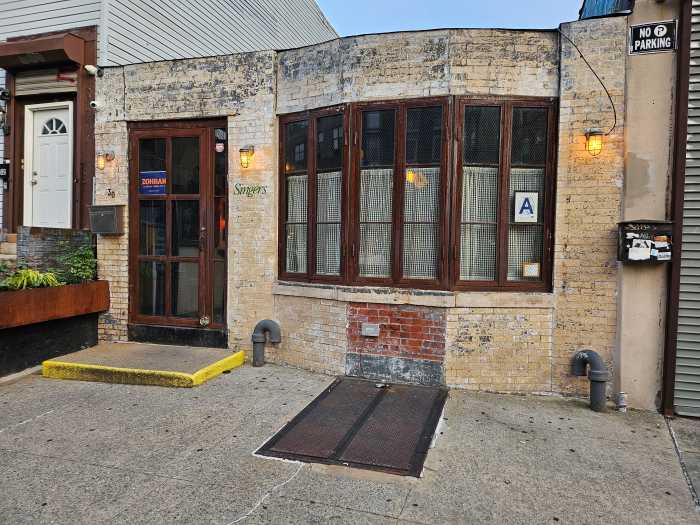As a lifelong New Yorker, I’ve weathered many cold winters. During my time as a Housing Inspector at the Department of Housing Preservation and Development in New York for over 25 years, I have vivid memories of the below-freezing winter days and nights that I faced since the 90s. While I am now a supervisor of other Inspectors, I still remember when I was in their shoes – trekking through frozen hallways, wading through icy boiler rooms, and going from apartment building to apartment building, issuing violations to get heat restored. While I may not be in the field all day as an Inspector anymore, I still get called out into the field every day by other inspectors to verify conditions they encounter, such as structural issues, blocked entryways, illegally occupied apartments, fire hazard conditions, and buildings that lack essential services like gas, running water, electricity, and sanitary facilities.
Enforcing heat regulations and other housing requirements sometimes means navigating a labyrinth of challenges, from battling faulty and worn boilers to absentee landlords. This role demands a wealth of knowledge and an endless to-do list every single day. But for me, it has been more than a job; it’s the frontlines of enforcing the city’s housing maintenance code – the tip of the spear ensuring landlords and property owners address maintenance problems in their buildings.
My journey as an inspector began when I was introduced to 215 W. 125 St, snugged beside the historic Apollo Theater. Immersed in manuals and shadowing seasoned inspectors across Manhattan, I learned the ropes by visiting 10, 15 even 20 apartments daily. Our tools weren’t sleek computers or smartphones; only a piece of paper and a pen. From the moment I set foot in a building, I meticulously documented violations. A lack of heat or hot water, missing smoke detectors, pest infestations, collapsing ceilings —you name it, I’ve issued a violation for it. This meticulous documentation, still practiced at the agency today, often filled my notepad with dozens of handwritten violations, especially during cold snaps when boiler failures led to frozen and broken water pipes. It could take us up to a week to respond with an inspection, given the volume of complaints and paper processes.
Every September since then, my team gets geared up for the heat season with the distribution of thermometers and refresher training on the requirements. One of the first things every Inspector learns is that, from October through May, property owners are legally required to provide sufficient heat, maintaining indoor temperatures at 68 degrees or higher when outside temperatures drop below 55 degrees, with overnight minimums at 62 degrees, no matter what. Hot water too must consistently register at least 120 degrees throughout the year. Every Inspector knows how important it is for them to understand how to conduct a heat inspection because tenants, people just like themselves or their families, rely on us to ensure that they can remain warm.
I advise tenants who encounter heat, hot water, or other housing conditions to always reach out to the building owner first – this is the quickest way, in most cases, for the condition to be addressed. At the same time, it’s important to me that tenants feel that if the condition isn’t addressed, that they can reach out to 311 and know that an HPD Inspector will respond. In my experience, many landlords make the necessary repairs in response to the tenant’s complaint, but sometimes a violation is necessary to confirm the problem and ensure a resolution,
Although a lot has remained the same, a lot has changed since I was an inspector. During heat seasons, tenants more often used to resort to using dangerous makeshift solutions involving propane and kerosene to keep warm. Now, at least, there are safer plug-in space heaters when the heat fails or tenants are cold. Closer collaboration between HPD and the Fire Department has improved our outreach and education around fire safety messaging related to heating and other dangers, and we hope tenants understand better how to keep themselves both safe and warm when there is a lack of adequate heat.
Technology has helped change the game, allowing us to process complaints and violations more quickly and efficiently through an online system. Most of our inspectors receive inspection requests on their mobile devices, allowing them to input the results during the inspection and eliminating the need to return to the office, allowing them to conduct more inspections each and every day. Tenants can track their complaints on HPD Online, designed to provide essential information to tenants and owners. These changes have helped to hold property owners accountable and, although boilers may always break and problems may always arise, the changes we’ve made have played an important role in ensuring that we as a city continue to protect our most vulnerable residents.
Our Inspectors also address more than heat and hot water issues when we respond. During our apartment visits, we also confirm that tenants have working smoke and carbon monoxide detectors, posted fire safety information, no lead-based paint hazards when a child under six years old resides in the apartment, window guards, self-closing doors, no visible mold or observable signs of pest infestations, and no illegal bars on fire escape windows or double cylinder locks on doors impeding egress.
In this line of work, the impact we have on keeping New Yorkers safe is front and center on every inspection. I vividly recall an alarming day during one of my routine inspections when I entered an apartment that had a missing floor. As I cautiously navigated the exposed beams and stepped inside, the dire conditions of the tenant’s lives were starkly apparent. Not only could they peer directly into the apartment below due to the absence of a floor, but they were also enduring the harsh reality of living without heat and hot water. It was a reminder that many of our neighbors across the city might be enduring similar circumstances, trapped in hazardous living conditions with nowhere else to turn. As an inspector, this is why we do this job. Encountering such distressing scenes underscored the importance of reporting violations and holding landlords accountable. Every report holds the potential to transform people’s lives, and responding to neighbors’ urgent calls serves as a powerful validation of the need for immediate action.
I think there’s a misconception that HPD or the city doesn’t react fast enough to 311 complaints. Visiting apartments in New York City in response to the hundreds of thousands of heat and hot water complaints we receive each year can be challenging, but just last year, we responded to more than half of those complaints. Last fiscal year, our inspectors issued over 16,000 heat and hot water violations, and HPD spent nearly $4.5 million on heat-related emergency repairs when owners didn’t act quickly enough. We started over 2000 heat and hot water cases in Housing Court, seeking orders requiring owners to comply with the law and obtaining civil penalties. For some repeat offenders, we proactively monitor the provision of heat. When we have to conduct multiple inspections in the same building and issue multiple heat or hot water violations, we impose fees for those inspections. All of these tools exist and work for you. Above all, New Yorkers deserve a safe and warm home. It is important that families know their rights and report any issues to their landlords promptly. Similarly, landlords should take proactive measures to ensure their tenants’ safety. By working hand in hand, we can improve housing conditions all across the city.
Even after 26 years, I go to work every day knowing that my team and I remain dedicated to ensuring tenants are safe, landlords are held accountable, and our communities are safe and healthy places to live and grow.
Rafael Frias Jr. is a lifelong New Yorker who has spent the last 26 years of his career working for the NYC Department of Housing Preservation and Development in the Office of Enforcement and Neighborhood Services.



































